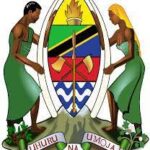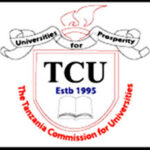About the East Africa Emerging Public Interest Advocates Programme. The East Africa Emerging Public Interest Advocates Programme for young legal professionals is a flagship fellowship programme by the Centre for Strategic Litigation (CSL) in partnership with other East African organisations including the Network of Public Interest Lawyers (NETPIL), Legal and Human Rights Centre (LHRC), Katiba Institute, Kituo cha Sheria, Advocates for Natural Resources and Development, Tax Justice Network – Africa, Center for Food and Adequate Living Rights, Initiative for Social and Economic Rights, Tree of Hope and Justice Centers.
The programme empowers young advocates through rigorous skills-based training and practical experience in public interest litigation. The goal of the programme is to build the next generation of public interest advocates in East Africa who share a commitment to and passion for promoting social justice and democratic values.
This comes from the realisation that there is a limited number of active public interest litigants as most lawyers prefer careers in private and other fields of law. The fellowship provides up to 30 outstanding young advocates from Kenya, Tanzania (mainland), Tanzania (Zanzibar) and Uganda with an opportunity to learn from public interest litigation and advocacy academics and practitioners, both in class and in court for six (6) months under the following carefully designed curriculum:
Residential programme
Intensive 1-month residential training programme. The residency combines lectures, court visits, community engagement, and practical learning through moot courts and mock trials. Fellows interact with some of the leading practitioners and scholars in human rights, constitutionalism and public interest litigation in East Africa.
Practicum
4.5 months of practical work in partner organizations under the tutelage of a dedicated mentor. Fellows work on selected problems under the mentorship of an experienced public interest litigant. Practical skills in Public Interest litigation and advocacy take place during this phase.
Closing Seminars
Fellows, trainers, and mentors convene in residence for reflection, evaluation of progress, and to determine the way forward. The programme for the respective cohort concluded.
About the application:
The fellowship programme for Cohort 2 is expected to start on 01 February 2021 and continue through and including 14 August 2021.
To be eligible to apply for the fellowship, one must:
- Be a citizen of either Kenya, Uganda or Tanzania.
- Be able to start the programme in Tanzania by 01 February 2021 and commit throughout the entire phase of the programme until 14 August 2021 the latest.
- By February 2021, be a recent college graduate or young professionals with up to five years of relevant work experience.
- Demonstrate passion for human rights and rule of law.
- Have provided all supporting documentation in the required format.
General conditions:
- If your application is successful, CSL will notify you via email that you have been selected, and you will have an opportunity to go through and sign the terms and conditions of admission.
- You must read these Terms and Conditions in full; in accepting admission to the programme, it is understood that you have read and agree to comply with these Terms and Conditions.When the terms of admission have been agreed to, CSL will send you a formal confirmation of admission.
- You are expected to start the programme on the date stated in your notification of admission.
- You will be selected for the programme, partly on the basis of your case study (human rights infringement) outlined on your application form, which is not expected to change significantly during the programme. Any such changes must be agreed by CSL.
- Your award may be terminated at any time for reasons of unsatisfactory conduct, progress or attendance. Applicants are expected to adhere to CLS’s code of conduct for award-holders which states:
As an EAEAPIP fellow, you are an ambassador for both the programme scheme and your home country, and your actions and remarks will have an impact on the reputation of both. You are therefore expected to adhere to high standards of conduct and professionalism and to show respect to others and your surroundings at all times. CSL aims to enable a free exchange of ideas during all its activities in order to achieve the maximum potential impact for all fellows. Recognising the diversity of backgrounds among our fellows – in terms of gender, religion and cultural values – you are reminded to always be respectful to others.






